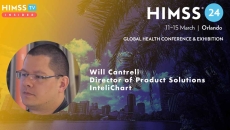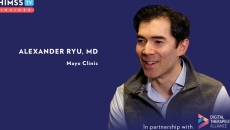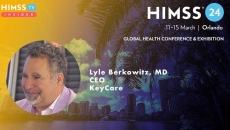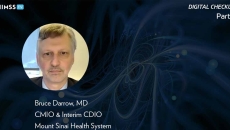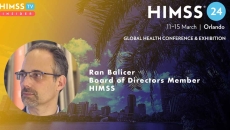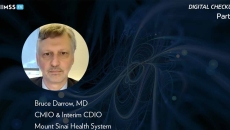Clinical
InteliChart's platform can integrate with EHRs and engage with patients via their preferred means. This allows providers to focus on clinical workflows, says Will Cantrell, the company's director of product solutions.
Research teams work to prevent bias in algorithms by involving clinicians and partnering with established AI companies, says Dr. Alexander Ryu, vice chair of AI and innovation at Mayo Clinic.
HIMSS24
Through Epic, KeyCare is expanding access to all types of care providers by partnering and coordinating with health systems rather than competing against them, says the virtual care company's CEO Dr. Lyle Berkowitz.
Connected care through the Memorial Healthcare System's mobile application gets patients engaged and taking more control of their care, and by feeding data to EHRs, can also help to save nurses time, says Jesus Diaz, director of nursing informatics.
The interim chief digital and information officer and CMIO at New York's Mount Sinai Health System raises the curtain on the artificial intelligence the organization is using today – and what tomorrow is likely to look like.
The genetic testing company used GPT-4o to create an artificial intelligence-driven tool that helps doctors create screening plans based on patient data, including personal risk factors and family history.
Dr. Harm Scherpbier, CMIO of HealthShare Exchange, says new technologies are being developed to work alongside EHR systems that have been built for traditional fee-for-service, enabling data sharing for accountable care models.
Although executives may feel pressured to use "error-prone" generative AI, mature, proven machine learning applications should be deployed in clinical settings first, contends Ran Balicer, HIMSS board of directors member.
AI & ML Intelligence
Why wait 10 days to see a dermatologist when an AI app with nearly the same accuracy as a clinician can treat you the same day? That's a question providers may soon have to answer, says Mount Sinai's interim chief digital and information officer.
In some ways, AI could achieve the same accuracy as physicians sooner rather than later. And some aspects of clinical care may migrate away from physicians, says Mount Sinai's interim chief digital and information officer.
